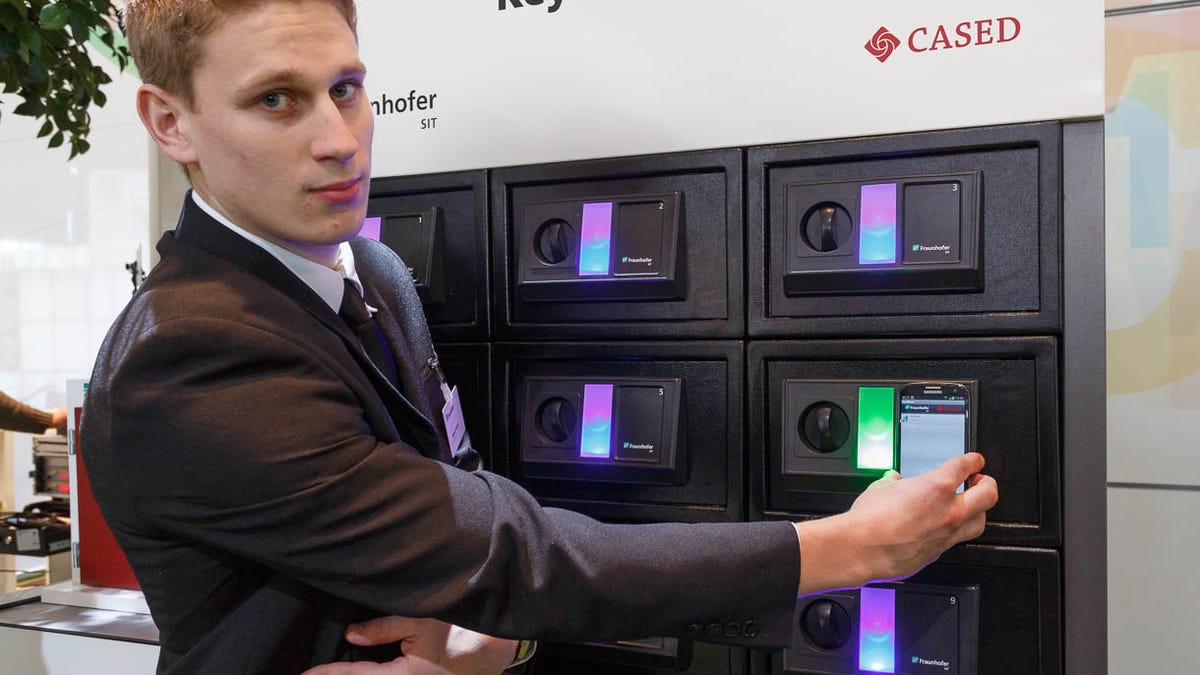Need to lend your key? E-mail it, Fraunhofer says
The German research organization is showing technology that lets NFC-equipped smartphones unlock doors, and let one person effectively e-mail a key to another.

HANOVER, Germany--You're traveling and your coworker needs your key to get into your office. Why not just e-mail it?
That's the idea behind Fraunhofer Institute's Key2Share technology, which the German research lab is developing in partnership with Bosch and showing off here at the CeBIT show.
Key2Share uses smartphones equipped with near-field communications (NFC) short-range wireless networking abilities to unlock phones. But because approval to use the key becomes digital data, a person can e-mail that approval.
It could be useful for other situations, too, said Ahmad-Reza Sadeghi, a researcher involved with the project. For example, a hotel could send a key to important customers by text message or e-mail so they can bypass check-in. And a company could also quickly revoke access if an employee loses a smartphone then issue new keys as fast.
"It is not that far from being a product, but it is not there yet," Sadeghi said.
To transfer the key, a person sends the recipient a QR code that grants access. To use the key, a smartphone app for the task is required -- and of course an NFC-equipped phone, which today rules out iPhones.
You should have some kind of lock mechanism on your phone today, but needless to say it becomes even more important if technology such as this arrives.

